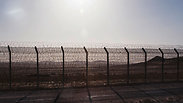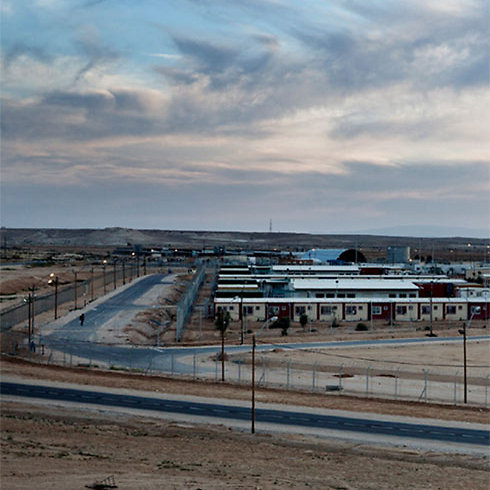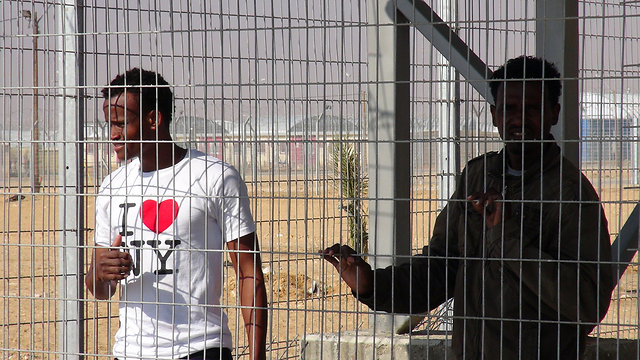
Migrants pressured into voluntary departure agreements
Report reveals government workers employed in Holot detention center place increased pressure on migrants to leave country; 'they keep telling us 'sign, sign,' but I can't go back to Sudan'.
A new report issued by human rights organizations reveals that government workers have been placing increased pressure on migrants held in the Holot detention center in the Negev to leave the country "voluntarily". The report further exposes serious failings in the functioning of the facility and an expansion of restrictions on privileges of the detainees.
The report, authored by activists at the Hotline for Refugees and Migrants and at Physicians for Human Rights, is published as part of the debate regarding the High Court's future ruling on a petition filed by human rights organizations against the new amendment to the country's Prevention of Infiltration Law. The law regulates the operations of the facility and is expected to be approved in the next coming days.
Anwar, an asylum seeker from Sudan who is detained at the Holot facility, said: "The people here from Immigration are constantly telling us, 'what will you do in the desert for your whole life, sign the papers already and go back to your country.'
"They keep telling us 'sign, sign,' but I can't go back to Sudan," Anwar added. "I'm worried for my family's safety. I will stay in jail for as long as necessary. People are being killed in Darfur as we speak. One minute there, and they'll kill me too."
According to the report, which is based on dozens of interviews with detainees at the facility, employees of the Interior Ministry and the Administration of Border Crossings, Population and Immigration have placed increased pressure on detainees to leave the country.
Within the first few months of the facility's establishment, reports had been received of attempts by workers of Israeli prison service workers and the Interior ministry to convince the migrants to leave.
In July 2014, the detainees began to report an increase in such activity: representatives speaking different languages from the Administration of Border Crossings, Population and Immigration, occasionally in uniform and occasionally in civilian clothes, had contacted them and recommended that they register for voluntary departure, for which they would receive a $3,500 "departure incentive".
The representatives did not make any guarantees to the migrants regarding their wellbeing in the countries to which they would be transferred and also failed to mention that no officials had been assigned to ensure their safety in the case that they arrive there.
Sources in the organization noted that in some cases, detainees' vacations were conditioned upon a voluntary departure.
Another deficiency revealed in the report is a lack of clear legal definition of the quality of health care services at the facility.
The report's authors warned that the numerous managing bodies that are in charge of the detainees – the Israel prison service, the Interior Ministry, a private company that provides medical services and the Health Ministry – may, in the absence of clear regulations and a clear division of powers, cause harm in the health of asylum seekers.
It was further noted that many of the detainees suffer from severe psychological condition due to traumas they experienced before and during their escape.
The indefinite detention, lack of hope and inaction further worsen their condition. Although many of them may develop anxiety syndromes, depression post-traumatic stress and more – there is no psychologist or psychiatrist on staff at the facility.
M, an asylum seeker from Sudan said: "Since the attacks in Sudan, I have been suffering from nightmares and sleep difficulties. Here in the prison my condition is very serious. They gave my pills but they had a bad effect on me. I feel great pressure. They ask me if I want to return to Sudan and I immediately experience stress and anxiety. It's difficult here in prison, I'm very scared."












